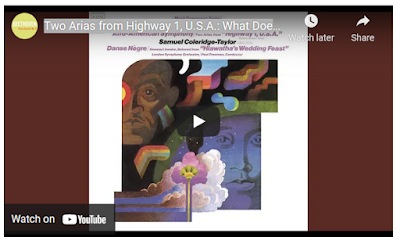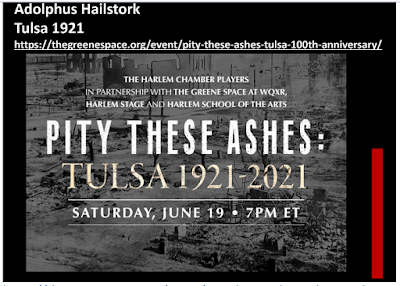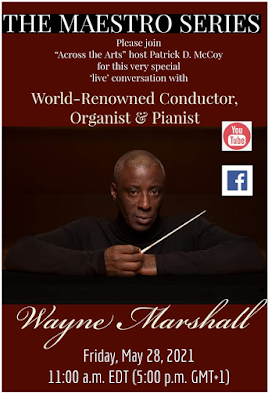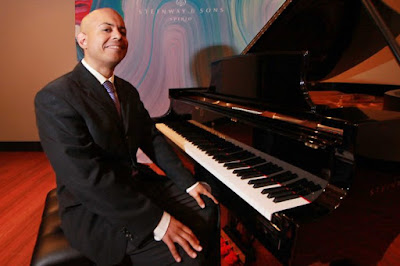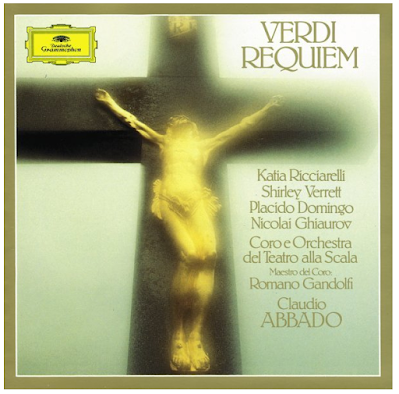Monday, May 31, 2021
Derrick Johnson, NAACP: Until their hopes are fully realized…
DC Metro HBCU Alumni Alliance, Inc.: Today, let's count our blessings as we remember and honor our heroes
On Memorial Day, we cannot forget the fallen
men and women in the Armed Forces who have made the celebration of this
day possible. As we remember and commemorate them, we are reminded
that they are not just names without faces. They are our mothers and
fathers, sisters and brothers, aunts and uncles, cousins and friends who
have sacrificed themselves for our country. They have given their lives
to allow us to enjoy the rights, liberties and freedoms that are the
bedrock of America. Today, let's count our blessings as we remember and honor our heroes. All the absolute best on this Memorial Day 2021. |
Sunday, May 30, 2021
John Malveaux: Cooperm55.wixsite.com: Margaret Bonds's Montgomery Variations (1964) will be performed by Gustavo Dudamel and the L.A. Phil July 15
John Malveaux of MusicUNTOLD.com writes:
STLToday.com: 'Highway 1, U.S.A.' is momentous tribute by OTSL to long-neglected composer
Originally, singers were under contract to perform George Gershwin’s “Porgy and Bess” this season, which turned out to be far too long for the abbreviated performance times of the socially distanced outdoor festival.
And this created a perfect storm for the success “Highway 1” turned out to be on Saturday’s opening performance.
Still was an American composer of more than 200 works including eight operas, five symphonies, and many choral works and chamber pieces. He was the first African American composer to have an opera, “Troubled Island,” produced by the New York City Opera. His “Afro-American Symphony” (1930) was, until the mid-20th century, widely performed.
Still composed classical music with an American signature and an African American voice.
“My musical training emphasized European musical culture,” Still said in a historic radio interview, “but this failed to satisfy me completely as a basis for an idiom of expressing myself. Therefore, I sought to create an idiom unmistakably American.”
With a libretto by Verna Arvey, Still’s second wife, “Highway 1, U.S.A.” tells the distinctly American story of a married couple, Bob and Mary, who help Bob’s younger brother, Nate, through college. Tensions build as Bob tells Mary that Nate needs more time to “establish himself.” The score blends elements of Romanticism, blues and musical theater.
Soprano Nicole Cabell sang a fabulous Mary and handled the emotional volatility of the part with finesse — in her double-entendres toward Nate, for example. The confessional ending of the first act (“How I hate him!”) showed off the emotional depth of Cabell’s vocal abilities.
Mary’s husband, Bob, was portrayed by baritone Will Liverman with a fine balance between the power of his heartfelt duty to his late mother’s dreams for Nate and the unexamined vulnerability of his own dreams deferred. His exchanges with Mary at the end were rich and full of pathos.
As Nate, tenor Christian Mark Gibbs was brilliantly bratty. The music for his part is lush and beautiful, full of all the potential and faith his mother had for him. Gibbs’ double-edged performance of “What does he know of dreams?” was remarkable as the text contradicts his charming boyishness and lyrical voice.
Mezzo-soprano Rehanna Thelwell was great as Aunt Lou, delivering a particularly striking aria in conversation with Mary (“The first day I saw you”). And baritone Andrew René sang a commanding yet sensitive sheriff.
Bill Doggett: CNN.com: CNN Adolphus Hailstork Interview/TULSA 1921 Preview
Bill Doggett writes:
Congratulations Adolphus Hailstork
Saturday, May 29, 2021
NYTimes.com: A Black Composer’s Intense Opera Gets a Rare Staging: William Grant Still’s one-act “Highway 1, U.S.A.” runs in St. Louis through June 17
By Seth Colter Walls
The composer William Grant Still was a student of the renowned experimentalist Edgard Varèse, an arranger for the blues icon W.C. Handy and the creator of the enduringly winning “Afro-American Symphony.” Thanks to his rich catalog of symphonic and chamber music, Still, who died in 1978 at 83, was widely known as the pathbreaking “dean” of Black American composers.
But his operas have struggled to gain a foothold in the repertoire. “Troubled Island,” about the Haitian revolution and its aftermath, boasted a libretto by Langston Hughes and additional lyrics by Verna Arvey, a writer who was married to Still. It premiered at New York City Opera in 1949, but continues to wait for a second production. (A fascinating, if scratchy, recording of the premiere can be purchased from the Still estate.)
Friday, May 28, 2021
Bill Doggett: Adolphus Hailstork Premieres: "Wounded Children" May 30, 2021 NYC; "Tulsa 1921" June 19, 2021 (Virtual); "A Knee On The Neck" Mar. 26, 2022 DC
- Wounded Children for Solo Piano May 30, 2021 New York City {In Person}
- Tulsa 1921 June 19, 2021 New York City{Virtual}
- A Knee On The Neck, A Requiem For George Floyd March 26, 2022 Washington DC {In Person}
FOR IMMEDIATE RELEASE
May 27, 2021
National Philharmonic Contact: Heidi Kibirsky, heidi@nationalphilharmonic.org
Adolphus Hailstork Contact: Bill Doggett, bdoggett55@gmail.com
A World Premiere: “A Knee on The Neck,” A Requiem for George Floyd
National Philharmonic is excited to announce the world premiere of the highly anticipated Requiem Cantata in memory of George Floyd, “A Knee on The Neck” by Adolphus Hailstork with text by Herbert Martin. The world premiere will be March 26, 2022 at the Music Center at Strathmore in Bethesda, MD. The performance will feature the National Philharmonic Chorale with special guest artists Aundi Marie Moore, Norman Shankle, and Kenneth Overton.
This work of immense power written by Adolphus Hailstork, one of the nation’s eminent composers, was created due to an inspired response to the tragedy of Mr. Floyd’s death through the text of historian and Professor Emeritus of The University of Dayton Ohio, Herbert Martin.
Scored for an orchestra, large chorus, and three soloists, “A Knee on The Neck” speaks to the challenges which Black Americans have endured and engages the audience to share that journey in powerful ways.
Tickets for the performance will go on sale this summer at nationalphilharmonic.org and the Strathmore Box Office.
The National Philharmonic, conducted by Piotr Gajewski, serves the residents of the Washington, DC metro area. The primary goal of the organization is to provide audiences with high quality, professional performances at a convenient location and affordable prices. The National Philharmonic also aims to appeal to the diverse cultural backgrounds of the community through its musical performances and educational programs.
POV.org: THE NEUTRAL GROUND makes its broadcast debut on POV on PBS Monday, July 5, 2021 at 10 PM ET and at pov.org
New York, N.Y. – May 27, 2021 – American Documentary | POV is proud to announce The Neutral Ground as the national broadcast premiere of its 34th season. Director CJ Hunt’s debut feature documentary, executive produced by Roy Wood Jr. and produced by Darcy McKinnon, will premiere Monday July 5, 2021 on PBS at 10 p.m. ET (check local listings) and at pov.org. The film will also be available to stream for free at pov.org until August 4, 2021.
An official selection of the 2021 Tribeca Film Festival, The Neutral Ground begins in 2015 as Hunt documents a raucous New Orleans City Council meeting about the removal of four Confederate monuments. It quickly becomes apparent just how divided white and Black residents are on the meaning of the city's statues. This tension between what to Hunt seems obvious – that the statues should be removed – and the fervor with which so many people oppose this view opens an opportunity for him to try and understand the mythology of the Confederacy and why Americans are willing to put so much on the line to guard its stone remnants.
When death threats halt the removals in New Orleans, Hunt hits the road, travelling across the South to try and understand why a losing army from 1865 still holds so much political and imaginative power in contemporary America. Through a mixture of investigative journalism and disarming humor, Hunt unravels America’s troubled romance with the "Lost Cause," a romanticized and distorted interpretation of the war that ex-Confederates inserted into textbooks, films and the popular imagination.
“In any public debate about Confederate monuments, it’s only a matter of time before someone utters the tired claim: ‘the Civil War wasn’t about slavery.’ Those six words epitomize the daily gaslighting that Black people experience in America. We are told the racism we see with our own eyes is imaginary; that, historically speaking, it never really existed," notes director CJ Hunt. "I made this film to help viewers fight against that gaslighting. Whatever textbooks you grew up reading, The Neutral Ground is an invitation to take a second look at the stories we were handed. We need to speak honestly about white supremacy - not as the rogue actions of bad men marching in the dark - but as the force that shapes every story we tell about America’s past.”
As the national monument controversy expands, Hunt's journey includes visits with historians, activists and his own father. It brings him to Richmond's Monument Avenue, the front lines of a Civil War reenactment, and finally into the ranks of Black reenactors bringing to life an 1811 slave rebellion to redefine what a "Southern rebel" looks like. At times darkly hilarious and at others soberingly serious, The Neutral Ground is a poignant exploration of the legacy of slavery which much of America has yet to face.
Executive producer Roy Wood Jr. notes, “This film tells the story of people courageously dragging this nation into a promising and progressive conversation about racial reckoning. It’s also the story of those who refuse to admit that this reckoning has arrived." Raised in Birmingham, Alabama, a correspondent on The Daily Show with Trevor Noah and known as one of the country's most incisive comedians on issues of race, Wood continues, "CJ’s approach to this topic ties into a much larger question facing America: How do we heal this nation’s deepest wounds when there are still so many people who won’t acknowledge those wounds exist?”
"Historically literate and intensely personal, The Neutral Ground is a critical contribution to the contemporary discussions around monuments, cultural preservation and racism that have intensified in the months during the worldwide protests for racial justice," said Erika Dilday Executive Producer of POV | Executive Director, American Documentary. "We knew this would be the right film to start the season."
* * * *
Credits:
Director: CJ Hunt
Screenwriter: CJ Hunt, Jane Geisler, James Hamilton
Producer: Darcy McKinnon
Executive Producer: Roy Wood Jr., Sally Jo Fifer
Editor: Jane Geisler
Cinematographer: Paavo Hanninen
Co-Producer: Jeremy Blum
Associate Producer: Katie Pham, Rachel Witwer, Jennifer Samani
Sound: Derek Rocque
Composer: Sultana Isham
Consulting Producer: Angela Tucker
Sergio A. Mims: SlippedDisc.com: The National Symphony Orchestra to perform the works of George Walker and William Grant Still
Wednesday, May 26, 2021
Support The Harlem Chamber Players this Spring
IMI: A Recital: Piano Music of Africa and the African Diaspora Thursday, May 27
Rodolfo Morales writes:
Hello FredO et al,
Rodolfo Morales
Instrumental Music Department Chair
Classical Piano Director
Tuesday, May 25, 2021
Patrick D. McCoy: THE MAESTRO SERIES: Wayne Marshall, Friday, May 28, 2021 11:00 AM EDT (5:00 PM GMT+1)
Patrick D. McCoy writes:
Bill Doggett: HONORED:**NEWS** -In Memoriam George Floyd/Tulsa 1921
Dear Friends,
Monday, May 24, 2021
On June 19, the Museum of Fine Arts, Boston (MFA), is hosting a day of outdoor programs to celebrate Juneteenth, screening "Summer of Soul" outdoors
On June 19, the Museum of Fine Arts, Boston (MFA), is hosting a day of outdoor programs to celebrate Juneteenth—the oldest nationally recognized commemoration of the ending of slavery in the U.S.—and honor the contributions of Black artists, scholars and creative voices to the City of Boston. Drop-in activities will include art making, Spotlight Talks focused on artwork by the MFA’s artist-in-residence Rob Stull and musical performances curated by BAMS Fest, hosted by D.Ruff and featuring The Mike Christmas Collective, Jordan Carter Band, SeeFour and DJ Baby Indiglo. In the evening, the MFA will host a free outdoor screening of Summer of Soul, presented in partnership with the Roxbury International Film Festival, before the film’s wide release in theaters and on Hulu on July 2.
Additionally, on June 16 at 6 pm, the MFA will host a virtual panel discussion titled "Disruption by Design: A New Path to Liberation."
The free outdoor screening of Summer of Soul—a stunning documentary from director Questlove featuring unearthed footage from the 1969 Harlem Cultural Festival—is part of the 23rd annual Roxbury International Film Festival (June 17–26) which takes place virtually on mfa.org and in person this year. RIFF is the largest festival in New England dedicated to celebrating films by, for and about people of color.
On June 19, the Museum will also provide transportation between the MFA, the National Center for Afro-American Artists and the Slave Narrative of Willie Mae live show at the Blair Lot in Nubian Square.
Bill Doggett: Zenobia Powell Perry's TAWAWA HOUSE completed by Perry authority Jeannie Pool is now available on Amazon in the Piano Vocal Score
Bill Doggett writes:
Dear Friends,
Sunday, May 23, 2021
ClassicFM.com: Margaret Bonds studied with Florence Price, and was the first Black soloist to perform with Chicago Symphony
The story of a barrier-breaking African American composer and musician who had a deep friendship – and for a while shared a roof – with the pioneering classical great, Florence Price.
Born Margaret Jeanette Allison Majors, Bonds came into the world on 3 March 1913 in Chicago, Illinois.
Her mother, Estella Bonds, was a musician, piano teacher and the local church’s choral director and organist. She taught piano to young Margaret from a very early age.
During high school, Margaret Bonds studied composition and piano with Florence Price – the first African American woman to be recognised as a symphonic composer and to have her work performed by major orchestras.
Price’s writing, as Bonds’ later would, married the European classical tradition with melodies from African American spirituals and folk tunes she grew up with.
By the age of 16, Bonds was studying at Northwestern University for a Bachelor of Music and later, a Masters in piano and composition. But she was in a minority of Black students, and the environment was racist, intimidating and almost intolerable.
Bonds recalls in an interview with James Hatch: “I was in this prejudiced university, this terribly prejudiced place – I was looking in the basement of the Evanston Public Library where they had the poetry. I came in contact with this wonderful poem, ‘The Negro Speaks of Rivers’, and I’m sure it helped my feelings of security.
“Because in that poem he [Langston Hughes] tells how great the Black man is: And if I had any misgivings, which I would have to have – here you are in a setup where the restaurants won’t serve you and you’re going to college, you’re sacrificing, trying to get through school – and I know that poem helped save me.”
Bonds’ collaboration with poet Langston Hughes
Langston Hughes was a leading poet and figure of the Harlem Renaissance, in whom Bonds found a life-long friend and collaborator.
Soon after they first met, Bonds set one of his best-known poems, ‘The Negro Speaks of Rivers’, to music.
During the Civil Rights Movement, Bonds and Hughes worked on music celebrating African American culture and values. Bonds would compose two important works dedicated to Martin Luther King Jr, one of them the Ballad of the Brown King, which was one of the duo’s most frequently performed pieces.
When Langston Hughes died in 1967, Bonds retreated. She left her husband and daughter in New York, and moved to Los Angeles where she remained until her death in 1972.
Sergio A. Mims: NYTimes.com: Stewart Goodyear performs three Beethoven Sonatas at 92nd Street Y Wednesday, livestreamed & online for a week
The Canadian pianist Stewart Goodyear never knew his father, who died of cancer a month before he was born.
But Stewart Sr., an aspiring writer, left his only child a rich musical legacy in the form of a large, eclectic collection of LP recordings. Even when he was just 3 or 4, Goodyear was enthralled by Led Zeppelin, the Beatles, Ravi Shankar, Joe Cocker and Carlos Santana. But it was two boxes containing the complete symphonies of Beethoven and Tchaikovsky that made him want to become a musician.
“Somehow I sensed that there was never a limit to the emotions expressed in this music,” Goodyear, 43, said in a recent interview. “This was the world I wanted to be a part of.”
Beethoven wound up occupying a central place in his diverse career. Goodyear has recorded the “Diabelli” Variations; the five piano concertos, with the BBC National Orchestra of Wales; and the 32 solo sonatas, released as a 10-disc set in 2012. The sonata set, in particular, is an outstanding achievement. Goodyear plays these seminal scores with pristine technique, abundant vitality, fascinating attention to detail and a composer’s grasp of overall structure.
He will play three of the sonatas on Wednesday at the 92nd Street Y: No. 15 in D, No. 25 in G and the stormy, mystical final one, No. 32 in C minor. Open to a small live audience, the recital will also be streamed and will remain online for a week.
Goodyear has been a soloist with major orchestras around the world, and has won high praise from critics. Yet he has not attained that extra level of awareness and appreciation from the public.
***
Asked about this, he said that it has perhaps been difficult for the classical music industry — which often likes its artists easy to package — to square his focus on canonical Beethoven with his adventurous streak. After all, this is a musician who has composed a calypso-inspired suite for piano and orchestra, and, recently, a rock-single spinoff recording called “Congotay” for piano quintet. (His mother, a schoolteacher, is from Trinidad, and he savored the calypso he heard on their summer trips there to visit her family.)
Five years ago, in a bold move, he decided to leave his management company and manage himself. “To concentrate on projects I was passionate about,” he said.
“I began self-financing my own recordings,” he added. “When I was under management, I kept being asked: ‘What are you? A pianist? A composer?’ And I never wanted to be in a box.”
One exhilarating manifestation of his intrepid artistry was his 2015 recording, on the Steinway & Sons label, of his own intricately detailed, splendidly played arrangement of Tchaikovsky’s “The Nutcracker”— not just the well-known orchestral suite, but the entire 82-minute ballet score.
***
This project risked seeming like a novelty. But there’s a long, still-misunderstood heritage of piano arrangements of orchestral and operatic works, pioneered by Liszt and championed a century later by Vladimir Horowitz. Goodyear’s “Nutcracker” was a rich contribution to that legacy.
This exceptional album was my reintroduction to Goodyear’s work. I had reviewed his 2005 debut with the New York Philharmonic, on one of the orchestra’s Summertime Classics programs, when he played Ernst von Dohnanyi’s 1914 “Variations on a Nursery Tune,” a lighthearted showpiece that showed up often in concerts until the mid-20th century. Goodyear was tapped to play this appealing curiosity for his Philharmonic debut, his only appearance to date, even though his concerto repertory is large.
The Goodyear project that stirred up the most pushback, at least initially, was his Beethoven sonata marathon in 2012, as part of the Luminato Festival in Toronto. Other pianists, including him, have played all 32 of these works over a stretch of days or weeks. But on this occasion Goodyear played them in order of composition — some 10 hours of music — in a single day.








